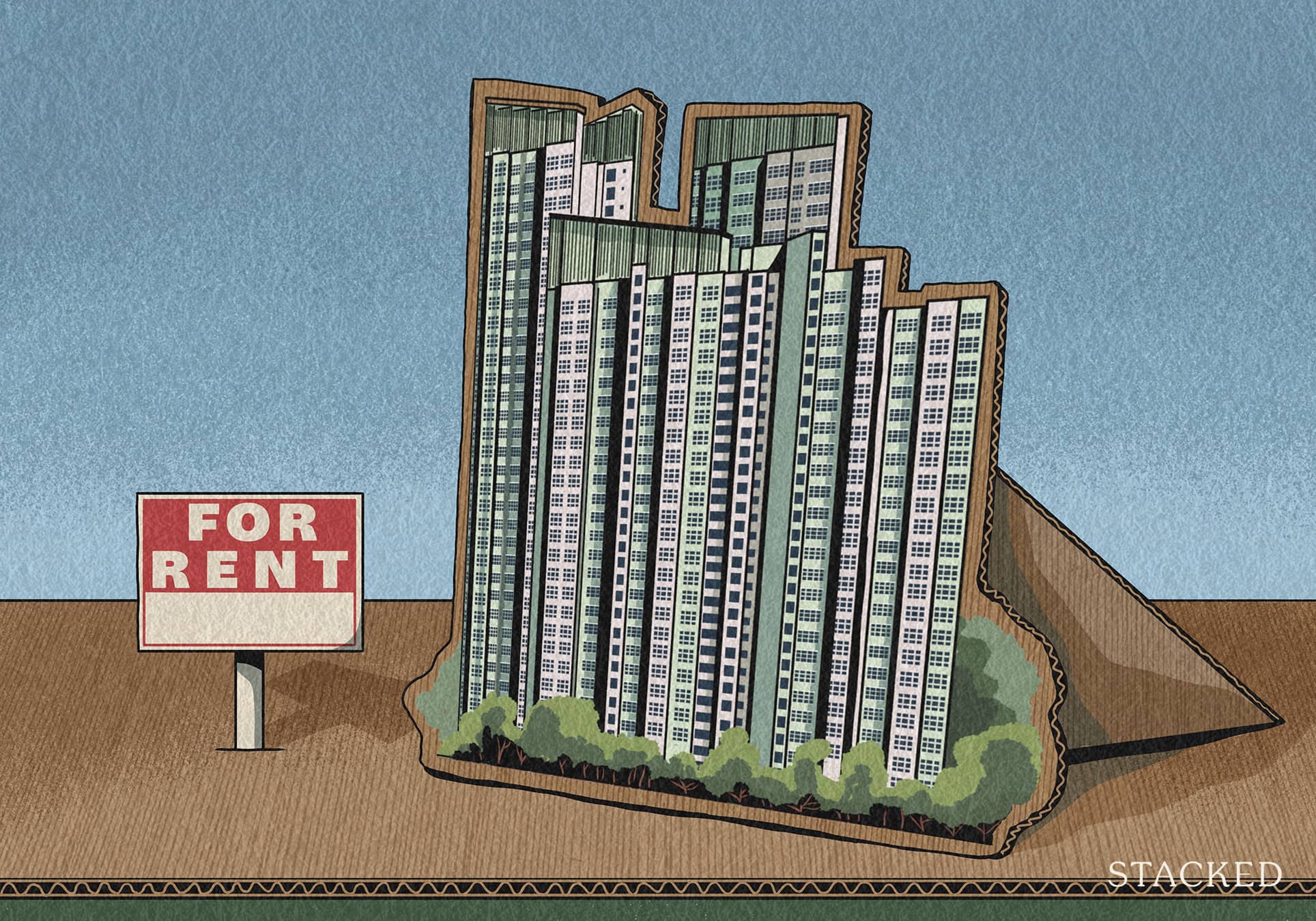6 Reasons Why You May Want To Avoid A Friend/Family As An Agent
November 30, 2022

It’s a common enough practice in Singapore: you have a friend or relative who is a property agent, so you’d feel bad not asking them to manage the buying or selling of your home. But what happens when something goes wrong? In our experience, dealing with a bad agent is one thing – but having to fire an agent who is also a childhood friend, or whom you’ll see at reunion dinner every year, is a level of awkwardness we can all do without. Plus if it doesn’t work out, you won’t just lose money (or be stuck with an unsuitable home), but you may also just lose a friend. Hear us out before you pick your next property agent:
Table Of Contents
The problems with using friends and relatives as property agents
- Revealing confidential information
- You may not be getting the best service or advice
- They may consider you a chore, without mentioning it
- Social norms prevent the usual stringency
- It’s very tough to fire them as agents
- There’s a tendency toward “under the table” practices
So many readers write in because they're unsure what to do next, and don't know who to trust.
If this sounds familiar, we offer structured 1-to-1 consultations where we walk through your finances, goals, and market options objectively.
No obligation. Just clarity.
Learn more here.
1. Revealing confidential information
When it comes to buying a home or planning your property journey, you may have to reveal financial information to your agent that you may not be comfortable sharing with a friend or family.
For example, it could be that you and your spouse are earning quite a fair bit more than what your lifestyle or surface assets may suggest. Or that you have more properties that you want to keep discreet. Having a family or friend be aware of that may just complicate issues down the road. No matter how close your relationship may be, the ugly green-eyed monster may just rear its head later on.
There’s also a matter of confidentiality here. While you may feel that you trust your friend/family to keep this information private (and in most cases, this wouldn’t be an issue), it may still lead to unintended consequences later on.
2. You may not be getting the best service or advice
Given the bad rep that most property agents get, it’s understandable why most would want to have an agent that’s a friend or family. After all, if you can’t trust friends or family, who else can you trust?
So while in most cases that may be true, the true issue is one of capability.
On the one hand, it’s true that a friend or relative may be more highly motivated to help you, and may go out of the way. On the other hand, that still may not make them the best people for the job.

Consider, for example, if your friend or relative mainly deals with OCR condos, and hasn’t dealt with tenancy agreements for years. Would this be the right person to trust in renting out your 4-room flat? Chances are, there are other agents with a more up-to-date reading of the market, and a bigger list of relevant prospects.
Another example of this is when you’re dealing with a very new realtor, who is handling their first-ever cases. It’s quite likely that they’ll reach out to any friends and family to be their initial clients.
Now we’re not saying you shouldn’t give them a chance – but that should depend on the kind of transaction you’re looking at.
Giving them a shot at finding you a tenant may be okay; but trusting them to sell your condo, or handle a complex upgrading process where you’re also going to apply for ABSD remission, is something to reconsider.
If they mangle the process, it will make for some very awkward social interactions in the decades to come.
Finally, there’s also the possibility of them taking your friendship for granted.
For example, we’ve had a client who mentioned that he engaged his friend as an agent, only to find that his friend frequently wasn’t able to attend viewings, and just had a serious lack of time for him.
“I later found out that he was concentrating on his other clients, and just assumed that because we were friends that I would understand. It ended up hurting our friendship anyway, when that was what I was trying to avoid from the beginning.”
3. They may consider you a chore, without mentioning it
From talking to some realtors, we’ve found that it works both ways: some of them also dislike working for family or friends, but feel obliged to when asked.
One realtor, who declined to be named, described the experience as such:
“My main area of specialty is landed housing, and I don’t actually have much to do with HDB. I find HDB quite a challenge, as there are a lot of rules here and there, and HDB is hard to market and differentiate.
Last year I had two family friends approach me to help with selling their flat, and at first, I tried to decline but my mother kept saying they are old, they are not well-educated, they will be cheated, so I gave in. I put a lot of time and effort into it.
I try to be appreciative of any business as it’s part of a positive mindset, but some cases are expensive to me. It takes time away from my core business.”
You might be able to see how badly this can go: if a realtor considers themselves to be doing you a favour, and later you also find cause to complain about them, the next few interactions won’t be pleasant.
4. Social norms prevent the usual stringency
If you use a friend or relative, the social compact can make you less likely to ask probing questions. We find, for instance, that some homeowners are shy to ask questions like:
- Are you getting commissions from (any company or person) you’re referring me to?
- Can we negotiate your commission?
- Have you sold properties like ours? When and where was the last one?
Some people are comfortable asking these of a realtor they don’t personally know; the professional nature of the relationship means it’s allowed and expected.
But when it comes to family and friends, the social compact says we’re supposed to trust them – and asking questions like these seems to imply the opposite. For some sensitive homeowners, it can result in almost no communication; they’ll reply to their agent with “sure, anything” to avoid being prying. If this is your natural tendency, then you should absolutely avoid using friends and relatives.

5. It’s very tough to fire them as agents
You can’t fire friends (or family).
We probably don’t need to explain why this is a problem. We’ll just say that, given how stressful house hunting can be, you should consider if you want this other potential source of anxiety.
We once met someone who spent an entire week trying to think up a polite way to fire his realtor, who was also his father-in-law. In the end, he failed to go through with it and ended up barely selling at valuation (not good in a hot year like 2021).
6. There’s a tendency toward “under the table” practices
The temptation is just a lot higher, for both you and the agent to start discussing things like “furniture discounts” (e.g., unstated discounts under a different name, which can result in some legal issues later).
Likewise, both parties may end up doing things they wouldn’t otherwise condone – like changing dates on documents, forging signatures to “save you time,” and so forth.
This isn’t to say that every friend or relative will stop doing things by the book; but just that there’s a greater risk of diminished professionalism, as there’s a lower level of business formality.
Some home buyers may see this sort of relationship as an advantage…until something does go wrong, and then the blame game starts.
The ideal relationship that realtors aim for is friendly but not familiar, and there are good reasons for their firms to train them this way.
For more insights into the links between realtors, buyers, sellers, mortgage brokers, etc., follow us on Stacked. We aim to help you be better informed, and also to provide you with the most in-depth looks at new and resale projects alike.
At Stacked, we like to look beyond the headlines and surface-level numbers, and focus on how things play out in the real world.
If you’d like to discuss how this applies to your own circumstances, you can reach out for a one-to-one consultation here.
And if you simply have a question or want to share a thought, feel free to write to us at stories@stackedhomes.com — we read every message.
Ryan J. Ong
A seasoned content strategist with over 17 years in the real estate and financial journalism sectors, Ryan has built a reputation for transforming complex industry jargon into accessible knowledge. With a track record of writing and editing for leading financial platforms and publications, Ryan's expertise has been recognised across various media outlets. His role as a former content editor for 99.co and a co-host for CNA 938's Open House programme underscores his commitment to providing valuable insights into the property market.Need help with a property decision?
Speak to our team →Read next from Property Advice

Property Advice We Sold Our EC And Have $2.6M For Our Next Home: Should We Buy A New Condo Or Resale?

Property Advice We Can Buy Two HDBs Today — Is Waiting For An EC A Mistake?

Property Advice I’m 55, Have No Income, And Own A Fully Paid HDB Flat—Can I Still Buy Another One Before Selling?

Property Advice We’re Upgrading From A 5-Room HDB On A Single Income At 43 — Which Condo Is Safer?
Latest Posts

New Launch Condo Reviews What $1.8M Buys You In Phuket Today — Inside A New Beachfront Development

Singapore Property News Taking Questions: On Resale Levies and Buying Dilemmas

Overseas Property Investing This Singaporean Has Been Building Property In Japan Since 2015 — Here’s What He Says Investors Should Know




































0 Comments